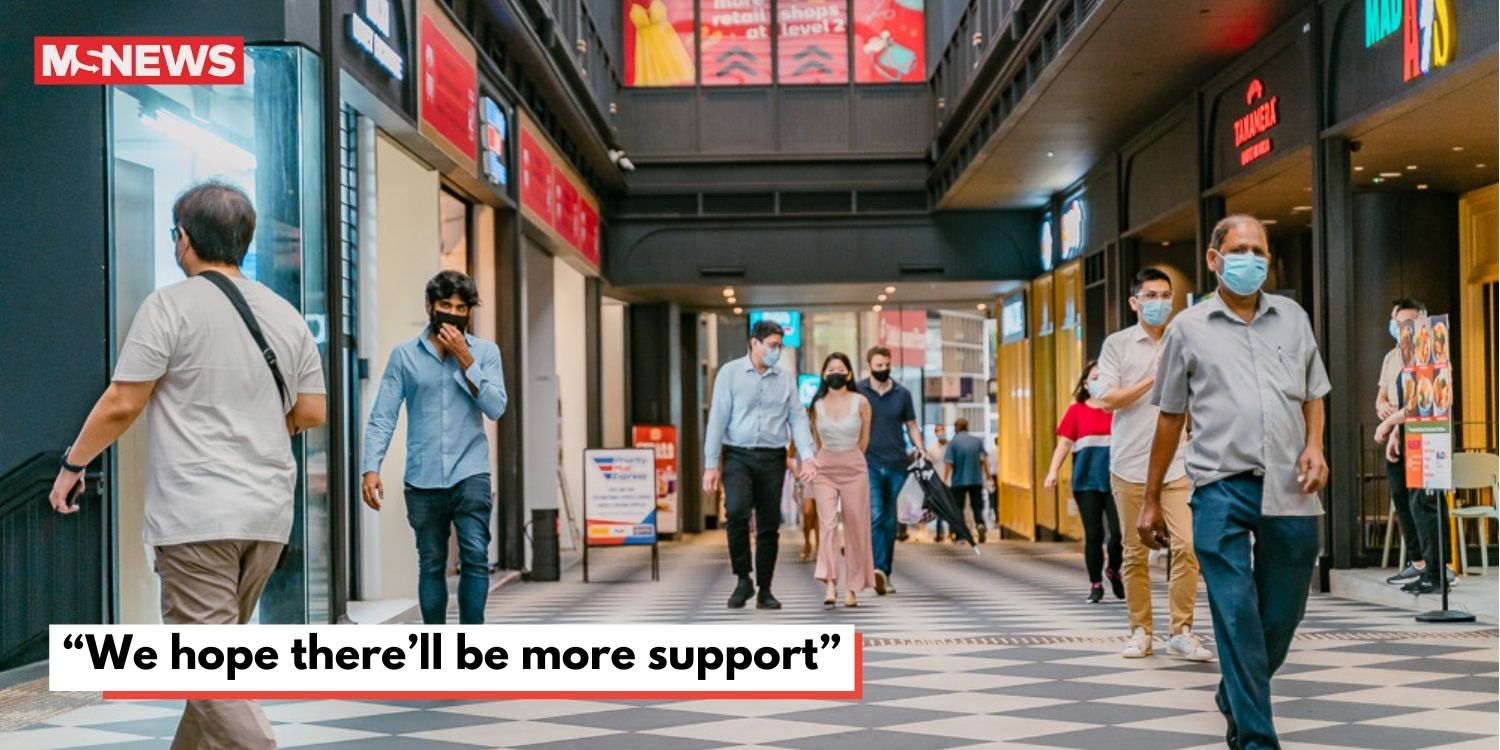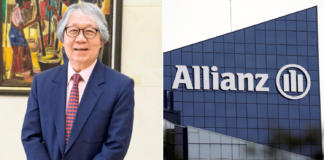Most Singaporeans hope Lawrence Wong should prioritise cost of living, according to poll
Inflationary pressures, a tumultuous geopolitical landscape and a staggered GST hike from 7% to 9% in the last two years — these, among other matters, have led to residents here feeling the pinch as prices in Singapore steadily increase.
Gwendolyn, who declined to give her full name, told MS News that she has watched her neighbourhood cai fan stall increase prices of her usual order of one meat and two vegetables from S$2.80 to S$3.
“It’s not a big amount for me, but the less one earns, the more they’ll be impacted (by price hikes),” the public relations executive in her mid-20s said.
Desiree Tan, who works in the media industry, also observed that prices for her usual supermarket buys have gone up.
For example, baby oats and a 2L carton of fresh milk used to cost S$10.90 and S$6.35 respectively in 2022, said the 39-year-old. Now it costs her S$11.35 and S$6.97.
“These small amounts add up,” she said, adding that her grocery bill is now around 15% higher than before.
Most Singaporeans think Lawrence Wong should prioritise cost of living
Gwendolyn’s and Ms Tan’s observation is not unique — an Answers.sg poll MS News conducted shows that cost of living is top of mind when it comes to pressing concerns.
Source: Answers.sg
Around three-quarters, or 76%, of 1,215 respondents said they hope incoming Prime Minister Lawrence Wong will prioritise cost of living when he takes office on 15 May.
Experts and people MS News spoke to agreed that cost of living is something that’s causing a lot of anxiety among Singaporeans and is likely an area Mr Wong will deem a priority.
Other priorities include supporting an ageing population and refreshing our social compact to build resilience and enhance inclusivity.
Housing is likely another area he will have to tackle in the near future, given that resale prices of HDB flats have been steadily rising since the second quarter of 2020. In addition, many flats have been sold above the million-dollar mark, pushing prices up.
This sentiment is shared among the poll’s respondents, with 11% indicating they’d like him to focus on housing issues.
Cost of living an issue close to many Singaporeeans
“Cost of living concerns are something that the vast majority of Singaporeans can identify with and relate to,” Eugene Tan, Associate Professor of Law at Singapore Management University told MS News.
“These concerns persist post-pandemic, and also speak to what the future might hold,” the former Nominated Member of Parliament noted.
“There is also the legitimate concern that Singapore has become very expensive to live in,” Assoc Prof Tan added. “As such, there is much that Mr Wong needs to do to provide assurance that the Government is on top of this concern and is prepared to do more to manage the concerns.”
Indeed, residents here have been experiencing pressures all round, and the Government is well aware.
It rolled out a suite of support measures at this year’s Budget including additional Community Development Council vouchers, cash payouts and rebates to help Singaporeans cope with cost-of-living concerns. But many feel more can be done.
Walter Theseira, Associate Professor at the Economics Programme of the School of Business at the Singapore University of Social Sciences (SUSS), noted that cost of living has become an issue due to the stagnant rates of real wages as compared to before.
Ministry of Manpower figures estimate that real wages grew by 0.5% per annum between 2018 and 2023, compared to 3.5% p.a. from 2013 to 2018.
Hence, even though Singaporeans have been getting increments and employment is still quite stable, people find that they can buy less than they are used to, Assoc Prof Theseira explained.
Expectations for more Governmental assistance to tackle cost of living when Lawrence Wong becomes PM
Some prices have also risen and are more noticeable — mainly ordinary things that most people pay for, such as groceries and food from hawker stalls. He noted that even if inflation overall is moderating, people still strongly perceive a much higher cost of living.
It could perhaps be more psychological as well, Assoc Prof Theseira pointed out. Inflation rates have slowed, but as prices of goods and services close to consumers, such as food and utilities, have increased, the perception that the cost of living is going up still persists.
Assoc Prof Theseira added that unlike longer term concerns such as housing, education, and jobs, cost of living issues are something that people perceive the Government “can directly and quickly address”.
For example, the public does expect Government action on things such as providing subsidies, cash, and grants to reduce the impact of inflation on cost-of-living, he said.
Housing a bugbear for younger Singaporeans
Although 32-year-old Jovi Kartolo agrees that cost of living has become a pertinent issue, there is another area that’s closer to his heart — the lack of affordable housing.
The game designer said he finds it challenging to own a home of his own, given that housing in Singapore is becoming more expensive.
“As a Singaporean who is the sole breadwinner of the family and is unable to buy a BTO — thus requiring me to rent in order to have a roof over my head — the post-Covid housing and rent costs really do feel claustrophobic,” he shared.
Mr Kartolo lives with his mother, and in the past two years, his landlord has raised his rent by as much as 70%.
The fact that Singapore has raised the GST by two percentage points also means a larger hit to his finances, as his salary has not risen in proportion to the added costs.
The GST hikes were made to support increased social spending for the next few decades amid an ageing population — a key matter of concern that requires immediate addressing, according to Assoc Prof Theseira.
Outgoing PM Lee Hsien Loong said last year that our population is “ageing rapidly”. By 2030, almost one in four Singaporeans will be aged 65 and above, up from one in six in 2020.
GST vouchers only address short-term
“I believe GST vouchers can only address the short-term, as the 9% rate will continue along with other rising costs,” Mr Kartolo said.
“So what is being done about salaries and opportunities beyond helping people to move industries mid-career? If I can’t get a better job, I can’t get a house, and this all snowballs into a pressure-filled and unfulfilled life here.”
Though Singapore is business- and investor-friendly, and several well-known companies have set up shop here, creating jobs for locals in the short-term, he is sceptical whether this would be sustained.
Take Disney ILM (Industry of Light and Magic), a company in an industry where he has many friends and acquaintances. Disney ILM announced the closure of its Singapore campus last August, citing “economic factors”.
“When companies like Disney ILM (Industry of Light and Magic) close their doors locally and developers are stuck in a quandary, I wonder if it’s even possible to organically grow our own local industry,” he said.
Retrenchments a worry for Singaporeans
Amid worries about rising costs of living lie another concern that’s plaguing SIngaporeans — job security.
According to an Answers.sg poll of more than 500 respondents, slightly more than half of respondents feel that they will be retrenched within the next few years.
Source: Answers.sg
40% of respondents are worried about retrenchment within the next year or two. Another 12% fear being laid off within the next three to five years.
Job security goes hand-in-hand with developing industries, and when industries grow more slowly than expected, this can lead to companies “right-sizing” to save on costs as the profits — potential or otherwise — no longer outweigh prevailing costs.
Source: Ministry of Trade and Industry
Assoc Prof Tan said besides cost-of-living, it’s vital that the Government addresses the people’s pain points such as in housing and job security.
“Bread-and-butter issues remain vital even for a prosperous country, partly because of Singapore’s innate vulnerabilities that Singaporeans have internalised,” he said.
Being a small city state with no natural resources, Singapore “has to import most of the food we consume and 60% of our water — and with limited air space and sea lanes”, he explained.
With an economy dependent on trade, investments, and globalisation, Singaporeans appreciate its “precarious existence” and are thus naturally concerned about jobs and what the future might bring, he added.
At the same time, the country is also at a stage in its development where Singaporeans also seek post-material – or non-material – aspirations such as social equity, social justice, national identity, and values.
“So we are concerned not just with material well-being but also these higher order aspirations. The challenge for the Wong Government is to address these seemingly competing sets of concerns,” he said.
Local businesses also suffer because of high rentals
For Mr Kartolo, he is practising “conscious consumption” in a bid to cope with the rise in cost of living as well as other overheads such as rent.
“Activating a bit of critical thinking before mindlessly consuming what’s in front of us may be the way forward,” he observed.
“Sometimes being at peace with ourselves instead of being in an eternal consumption rat race may be the thing we need in these dire times.”
Meanwhile, Gwendolyn has reduced her spending on “unnecessary” expenses like after-lunch coconut shakes, which she used to get two to three times weekly.
“Frankly, it’s something I can go without, but it’s a treat for when I’m having a hard time at work,” she said with a laugh.
“I hope the Lawrence Wong government will prioritise cost of living as necessities aren’t getting cheaper either,” Gwendolyn added, noting that while she is “comfortable enough”, her ageing parents will face difficulties even as she helps with her house’s finances.
As for Ms Tan, she has resorted to buying supermarket house brands for many essential products, including butter, kitchen towels and cleaning products.
“In times like these, you can’t afford to splurge on an expensive European brand that essentially gives you the same thing.”
Have news you must share? Get in touch with us via email at news@mustsharenews.com.
Featured image by MS News.

Drop us your email so you won't miss the latest news.









